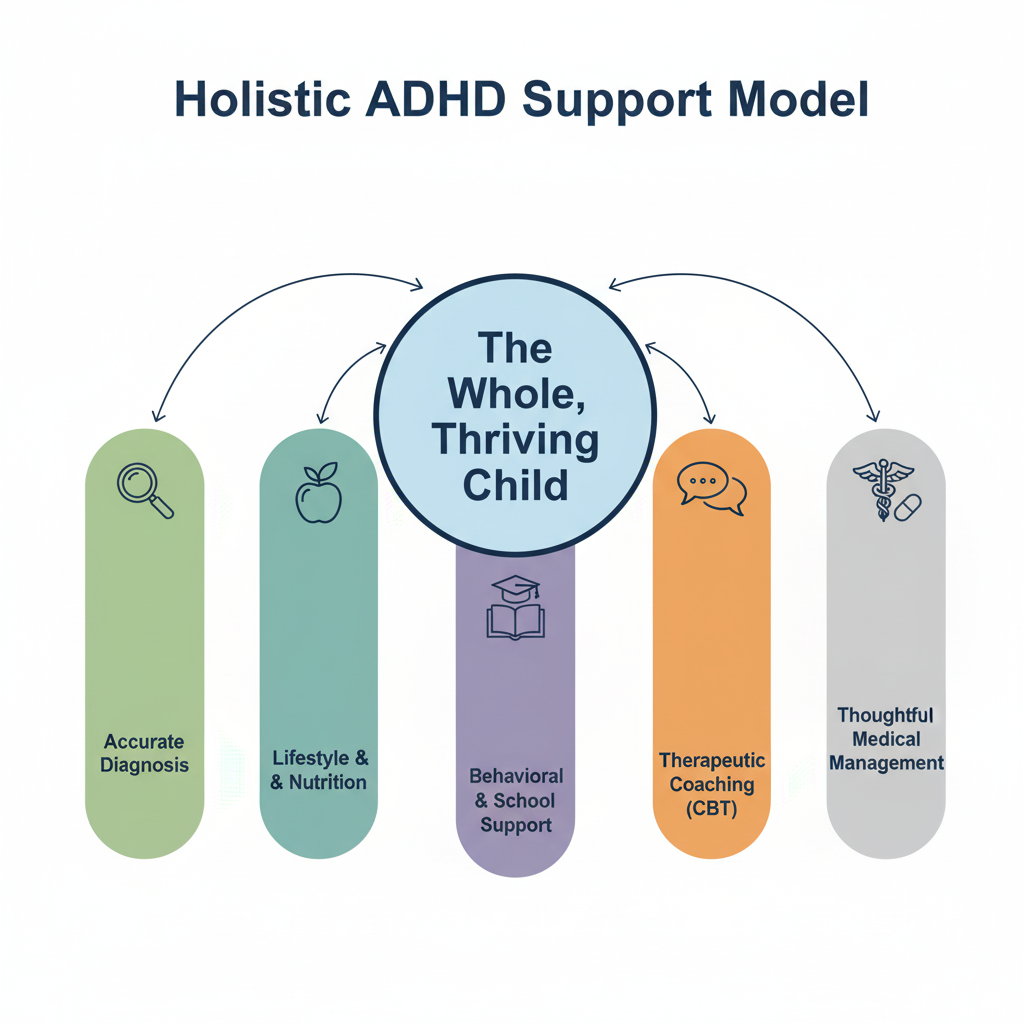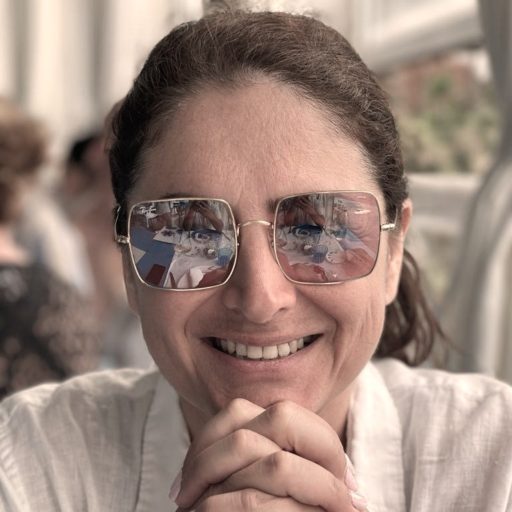As a concierge pediatrician in Beverly Hills, I have the profound privilege of partnering with families who are deeply invested in their children’s well-being. This community is defined by its drive, its ambition, and its fast-paced environment. We want our children to succeed, to be happy, and to reach their full potential.
So, what happens when you notice a disconnect? Your child is bright, creative, and loving, but you see them struggling with things that seem to come easily to their peers. Perhaps you hear feedback from teachers about a lack of focus, or you experience nightly battles over homework. You might find yourself wondering, “Why can’t they just sit still?” or “Are they being defiant, or is something else going on?”
If these questions are on your mind, you are not alone. These are the very concerns that often lead parents to my office to discuss Attention-Deficit/Hyperactivity Disorder, or ADHD.
The pressures on children in Beverly Hills are unique. The academic and extracurricular expectations are incredibly high. In this environment, challenges with executive function—the very skills affected by ADHD—can become magnified and lead to significant stress for the entire family. My practice is built on the belief that to help your child thrive, we cannot just look at a list of symptoms. We must live. This is the core of a holistic, concierge approach to ADHD.
What Is ADHD, Really? Beyond the Label
First, let’s establish a clear, professional understanding of ADHD. It is not a failure of parenting, a lack of willpower, or a sign of low intelligence.
ADHD is a neurodevelopmental condition. This means it is rooted in the brain’s biology and development.
Here is a key scientific fact: Brain imaging studies have shown that in children with ADHD, certain brain networks develop differently. The prefrontal cortex, in particular, often matures more slowly. The prefrontal cortex is our “command center,” or CEO. It is responsible for all our executive functions: planning, organization, impulse control, emotional regulation, and sustaining attention. When the brain’s “command center” is on a different developmental path, a child will naturally struggle with these “CEO-level” tasks.
It is also essential to recognize that ADHD is not a one-size-fits-all condition. It typically presents in one of three ways:
- Primarily Inattentive: These children struggle with organization, forget instructions, lose things, and get sidetracked easily. They are often described as “daydreamers” and, because they may not be disruptive, their struggles can sometimes be missed.
- Primarily Hyperactive-Impulsive: This is the more classic image of ADHD. These children may fidget, squirm, run or climb excessively, interrupt others, and find it almost impossible to wait their turn.
- Combined Type: The child shows significant symptoms of both inattention and hyperactivity-impulsivity.
The challenge is that many of these behaviors are just normal “kid” behaviors. The diagnostic difference lies in frequency, intensity, and impairment. When these behaviors consistently interfere with school, friendships, and family life, it is time for a professional evaluation.
The Concierge Difference: An Accurate Diagnosis Takes Time
In a traditional, high-volume pediatric practice, appointments are often limited to 10 or 15 minutes. This is simply not enough time to properly evaluate a complex condition like ADHD. A rushed visit can lead to a quick, and potentially incorrect, label or, just as damaging, a dismissal of a parent’s valid concerns.
My concierge model is designed to solve this exact problem. My goal is never to be fast; my goal is to be right.
When you come to my office, our process is thorough:
- We Listen: Our initial appointments are long, often an hour or more. I want to hear your complete story. What are you seeing at home? What is the homework situation? What are mealtimes like? What are your child’s strengths and passions?
- We Gather 360-Degree Data: I use comprehensive, evidence-based screening tools (like the Vanderbilt scales), which are given to both you and your child’s teachers. This is critical, as a child may behave very differently at home than in a structured school setting.
- We Look at the Whole Picture: Is your child actually sleep-deprived? An overtired brain mimics an ADHD brain perfectly. Could it be anxiety? A learning disability? A vision or hearing issue? We must rule out these other possibilities before concluding it is ADHD.
This unhurried, detailed approach allows us to build a precise, accurate profile of your child’s unique brain and challenges.
A Holistic Treatment Plan: More Than Just Medication
When an ADHD diagnosis is confirmed, many parents feel a wave of anxiety. Their primary fear is often, “Does this mean my child has to be on medication?”
Let me be clear: while medication can be an incredibly effective tool for many children, it is rarely my first or only recommendation.
A truly holistic plan, especially for a child in a high-demand environment like Beverly Hills, must address their brain, body, home, and school. Here are the pillars of the comprehensive management plans I create with my families.
Pillar 1: Lifestyle and Foundational Health
We must establish a strong foundation before adding any other interventions. This includes:
- Sleep: We will conduct a full sleep audit. A child with ADHD needs consistent, high-quality sleep more than anyone.
- Nutrition: We focus on “brain-fuel” foods. This means a protein-rich breakfast to support neurotransmitter production, complex carbohydrates for sustained energy, and an increase in Omega-3 fatty acids, which are vital for brain health.
- Exercise: Physical activity is a powerful, natural tool. It releases dopamine and norepinephrine, the very neurochemicals that ADHD medications target, improving focus and mood.
Pillar 2: Behavioral and Environmental Support
This pillar is about changing the environment to support your child, rather than trying to force your child to fit an environment not built for them.
- Parent Coaching: We work together to implement strategies at home. This includes creating predictable routines (kids with ADHD thrive on structure), giving clear one- or two-step instructions, and using positive reinforcement to celebrate small wins.
- School Collaboration: As your concierge pediatrician, I have the time to be your child’s advocate. I will personally communicate with their school to help you navigate the process of getting a 504 Plan or an IEP (Individualized Education Program), which provides formal accommodations like extra time on tests or preferential seating.
Pillar 3: Therapeutic and Coaching Interventions
We build your child’s “toolbox” of skills. This often involves referring to trusted colleagues for:
- Cognitive Behavioral Therapy (CBT): This helps children understand their thought patterns, manage frustration, and build self-esteem.
- Executive Function Coaching: A specialist works with your child on the practical skills of organization, time management, and planning long-term projects.
Pillar 4: Thoughtful Medication Management (If Needed)
If the above supports are in place and your child is still struggling significantly to learn and function, we may discuss medication.
My philosophy on medication is “start low, go slow.” Because I am your concierge doctor, I can monitor your child closely. We can check in by phone or text to see how they are responding. We can make tiny, precise adjustments to find the lowest effective dose. Your child is never just given a prescription and told to follow up in three months.
Visualizing the Holistic Approach
To help parents understand how all these pieces fit together, I often use this model. No single pillar can support the child alone—it is the combination that creates a stable foundation for them to thrive.

Redefining Success: You Are Not Alone
In a community so focused on achievement, it is important to remember that ADHD is not a deficit of character. In fact, many of the world’s most successful entrepreneurs, artists, and innovators have ADHD. Their brains are simply wired differently.
The data shows that this is a common journey. According to the Centers for Disease Control and Prevention (CDC), approximately 6 million children in the United States aged 3-17 have been diagnosed with ADHD. Furthermore, the landmark Multimodal Treatment Study of ADHD (MTA) confirmed that for most children, a long-term, combined treatment plan (including behavioral therapy and, when appropriate, medication) leads to the best outcomes.
My goal is to help you redefine what success means to you. Success is not just about a perfect report card. It’s your child feeling confident and having a peaceful evening of homework. Success means your child making a new friend or feeling proud of a project they completed.
Navigating this path can feel overwhelming, but you do not have to do it alone. As your concierge pediatrician, my role is to be your partner, translator, and advocate every step of the way.
For more information and wonderful support networks, I highly recommend these two outstanding resources:
- CHADD (Children and Adults with Attention-Deficit/Hyperactivity Disorder)
- HealthyChildren.org (The official parent-facing site of the American Academy of Pediatrics)
If my unhurried, holistic, and deeply personalized approach to pediatrics resonates with you, I invite you to learn more about my practice. Please visit my homepage at BeverlyHillsPediatrician.com to learn about the concierge difference.
